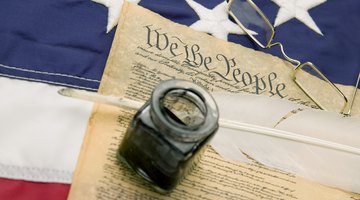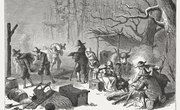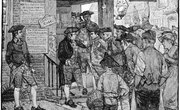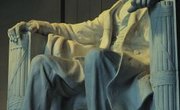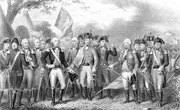The Proclamation of 1763 was issued by King George III of Britain after the French and Indian War, and forbade North American colonists from settling past a fixed line along the Appalachian Mountains. This Proclamation was designed to ease tensions with Native Americans, but led the colonists to resent the British for imposing a restrictive law upon them and was a major factor in increasing tensions between the British and their colonists that culminated in the American Revolution.
The French and Indian War
The French and Indian War was a conflict fought between Britain and France in North America from 1754-1763, and was part of the larger Seven Years War in Europe. Britain's victory gave them substantial North American French territory, including all the land up to the Mississippi River.
The North American colonists were instrumental in helping Britain defeat the French, but began to resent Britain when it used the Proclamation to limit their settlement onto this new territory.
Native Americans
The main reason for the Proclamation was to prevent further conflicts between British settlers and the Native American tribes who had been allied with the French and who occupied the newly British territory.
Pontiac's Rebellion of 1763, an unsuccessful uprising by a group of Native American tribes in the Great Lakes region aimed at resisting encroaching settlements, further emphasized the need for some sort of Proclamation line along the Appalachian Mountains.
Cost to Colonists
The Proclamation line also had economic costs for the colonists.
- Land speculators who had tried to make significant profits off of unsettled land west of the Appalachian Mountains, as they had with other unsettled land, resented the new British law.
- Colonists also resented the increased taxes they had to pay to finance the new British outposts built along the Proclamation line to enforce it.
Buildup to Revolution
These taxes were one of the major contributors to the subsequent American Revolution, a fire that the Proclamation line first kindled.
Prior to the Proclamation, the British had practiced a policy of salutary neglect, letting the colonies develop on their own without significant interference in the form of laws or taxes.
The new territory from the French and Indian War, however, changed that. Colonists would resent this increased British involvement, and eventually would rebel in 1776 and form their own independent nation.
Related Articles
References
- The War That Made America: A Short History of the French and Indian War; Fred Anderson
- Colonial America: A Very Short Introduction; Alan Taylor
- American History: A Very Short Introduction; Paul S. Boyer
- The Middle Ground: Indians, Empires, and Republics in the Great Lakes Region, 1650-1815; Richard White
- The French and Indian War; Walter R. Borneman
Writer Bio
Aatif Rashid writes on international politics and culture. His articles have appeared in magazines such as "The Oxonian Globalist" and online at Future Foreign Policy and ThinkPolitic. He holds Bachelor's degrees in English and history from U.C. Berkeley and a Masters degree from the University of Oxford.

